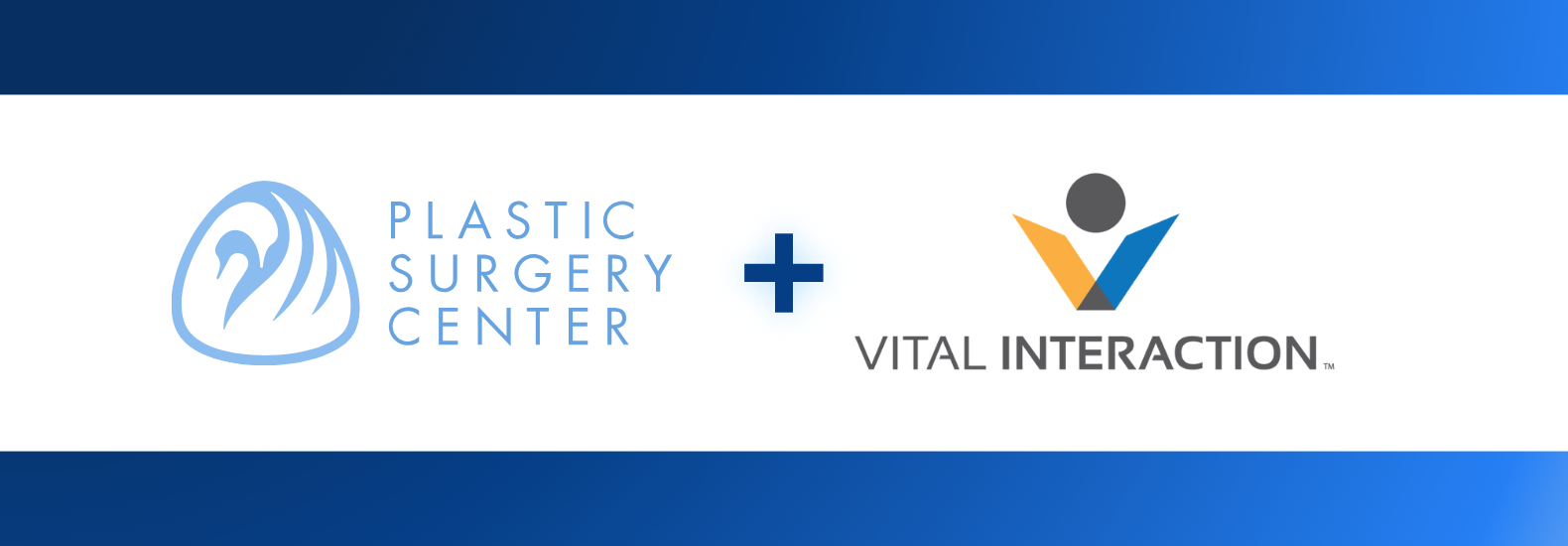
Specialty
Reconstructive and cosmetic surgeries
Location
2 locations in Kansas
Management System
Nextech
Providers
7
Key Use Cases
- Fully automated appointment confirmation process
- reactivation for high value procedures
- Two-way texting for pre-op patients
- automated post-appointment messaging for patient feedback
About PSC Wichita
Plastic Surgery Center (PSC) is the longest standing private plastic surgery practice in Kansas. In 2023, they celebrated their 50th year in practice. PSC has three board certified plastic surgeons and 31 employees. The practice offers everything from reconstructive to cosmetic surgeries as well as aesthetic treatments such as injectables, laser treatments, vein removal, and wellness.

Smart List Engine makes things very simple for us and we know that patients who need to see us are being contacted. With numerous providers, trying to track down every patient that needs an appointment takes a lot of time out of my day. The fact that Vital Interaction does this automatically allows me to focus on other things that will benefit the practice.
Katie Keith
Director of Clinical Operations | PSC Wichita

Opportunity
Before Vital Interaction, the patient communication program that PSC was using was very basic and wasn't fully integrated into their Nextech practice management resulting in various patient communication issues. For example, if a patient sent a text to cancel an appointment, the program didn’t remove the patient from the schedule so PSC thought the patient was a no-show. Patients complained that they notified PSC to cancel or had sent questions but the practice didn’t get the messages and couldn’t respond. In addition, the program that PSC used was not user friendly with any of the types of patient reactivation campaigns that the practice tried to run and couldn’t track appointments that were canceled and never rescheduled.
After implementing Vital Interaction, PSC, led by Katie Keith, Director of Clinical Operations, saw an improvement in several key areas. In this case study we’ll explore how Plastic Surgery Center used Vital Interaction to achieve their goals.
Improved patient experience
Unlike PSC’s previous program, Vital Interaction is deeply integrated into Nextech, so if a patient needs to cancel an appointment, they simply text back from the appointment reminder message and Vital Interaction’s technology automatically removes them from the schedule after they complete the two-step cancellation process. If patients don’t reschedule, Vital Interaction sends them a reminder text message. Katie said, “As far as the scheduling aspect goes, Vital Interaction was a really big game changer for us. Vital Interaction knows immediately if a patient has canceled or not rescheduled so it takes the legwork from us and puts it back on the patient to reschedule. And that's just more revenue for us.”
By using Patient Chat, Vital Interactions’s two-way texting feature to directly communicate with patients, PSC makes communicating with the practice simple and easy. Patient Chat is largely used by the medical assistant and surgical teams to contact patients with pre-op instructions. Katie commented, “We've really noticed that patients enjoy the ease of texting. They don't like to talk on their phones anymore. Their lives are busy. They want to respond at their own convenience and this is a tool that allows us to do that.” Patients also use Patient Chat to simply ask questions about their procedures or billing. Katie added, “It gives the patient a little bit of ease that we're here and they can get a hold of us.”
As for the initial staff response to using Vital Interaction, Katie reported that, “The support staff at Vital Interaction was wonderful and very responsive. It's very easy, very user friendly and it is definitely helping with our patient communication.”
Increased revenue through patient reactivation
PSC uses Vital Interaction for ongoing patient reactivation campaigns to contact patients who haven't been in for Botox or laser treatments in a while. Vital Interaction’s Smart List Engine scans PSC’s Nextech system constantly to identify patients who haven’t been in for 9 months for these services and don’t have a future appointment scheduled. Patients that meet this criteria are sent messages reminding them to call and schedule an appointment. This ongoing patient reactivation campaign resulted in an impressive 16% conversion rate to scheduled appointments for these high value procedures driving a significant increase in revenue for the practice. Per Katie, “Anything above a 5% conversion rate is extremely successful, so getting up close to that 20% mark is far beyond what we anticipated.”
Improved customer feedback and online reputation
Leveraging Vital Interaction, PSC has built an automated process to solicit patient feedback. After each appointment, Vital Interaction sends patients a message prompting them to click on a link to share information about their visit. Katie reports that this post-appointment flow has been “so amazing for our Google reviews. It's also upped our stars on Facebook. And if a patient didn't have a great experience, they can say what they didn't like about their experience and it gives us an opportunity to make things right for them.”
Reducing administrative burden and saving staff time
By streamlining and automating so many aspects of their patient communication process, PSC has given back countless hours to their staff. In fact, they estimate saving more than 100 hours per month in staff time that can be directed to a wide range of high value activities that improve the patient experience and benefit the practice.
Looking Ahead
With the success of Vital Interaction in improving their overall patient communication and patient reactivation efforts, PSC will continue to work closely with their dedicated Account Manager to refine and improve all aspects of the patient communication process. On the list are more reactivation campaigns, expanded use cases for bulk sending, and embedding videos into emails for patient education.